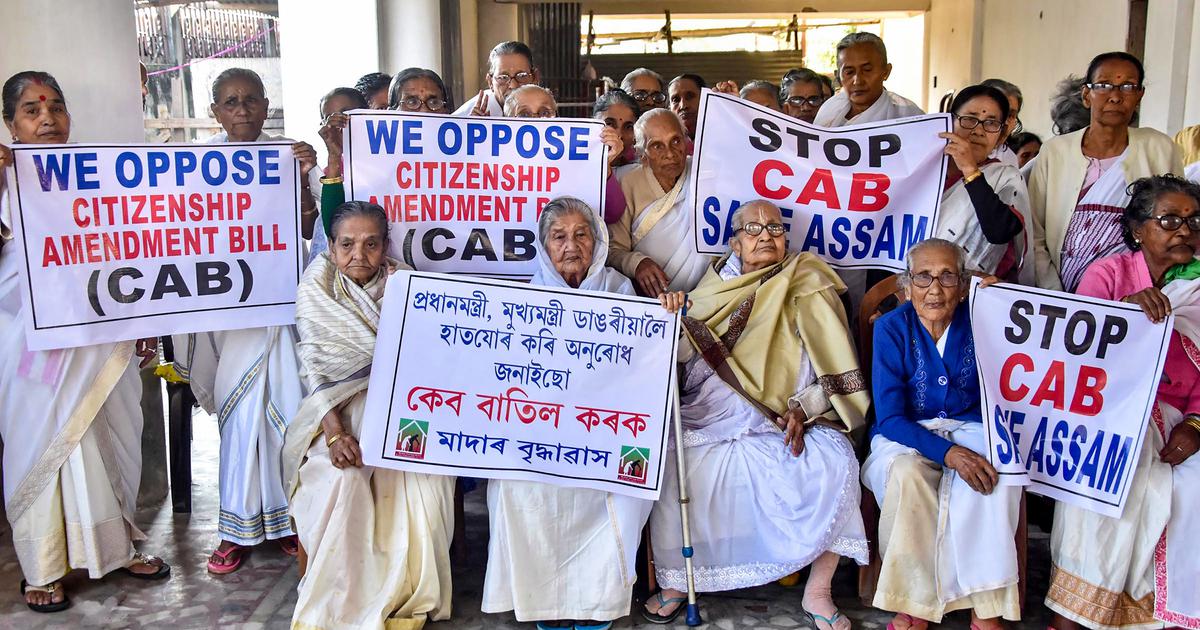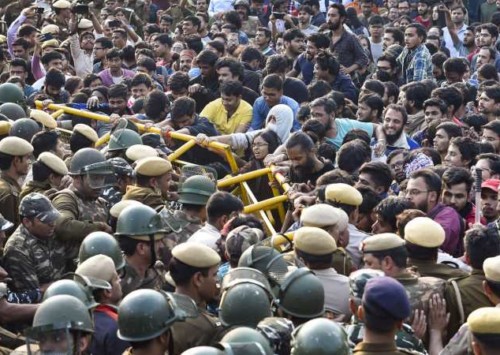Citizenship Amendment Bill

Thousands of people turned out to protest in Assam and Tripura, calling upon the government to withdraw the bill
The strong reaction to the Citizenship Amendment Bill (CAB) passage was expected. The government is caught unprepared to deal with the mess, yet again.
It seems like a classic case of self-hypnosis. For months, or years, since 2016 to be precise, while the Citizenship Amendment Bill was being discussed or even drawn up, large chunks of the north- east had risen in very vocal, visible, vivid and vehement opposition to the proposed law. The strong response to the bill has been in evidence on several occasions in the past one year also, including during the campaign for the Lok Sabha elections in May 2019. And, more recently, ever since the bill was placed in the Lok Sabha earlier this week, there have been daily protests against the move in various parts of the region.
The government tried to reassure the people by exempting parts of the north-east where the new law would not be applied, notably in the Inner Line Permit (ILP) areas in several north-eastern states. However, the rage of the public in the area continued to mount, even as the government rammed the controversial bill through the Parliament, even without allowing a thorough debate as the bill was passed after less than a day’s debate.
All the while, the government, notably home minister Amit Shah and Prime Minister Narendra Modi kept on saying that the CAB was a boon for India and that the north-east would only stand to gain from the change in the law which had been overdue for nearly 70 years. The two also presented the bill as a humanitarian gesture to the Hindus and other non-Muslim minorities that faced persecution in the neighbouring countries and that India’s long tradition of welcoming the persecuted would be simply continued with this bill, while allowing the persecuted to escape their tormentors and rebuild their lives in India.
But the writing on the wall was clear and the statements of the government failed to have any impact on many residents of the north-east. As soon as the bill was cleared by the Lok Sabha, thousands of people turned out to protest in Assam and Tripura, calling upon the government to withdraw the bill. And after the Rajya Sabha also gave its assent to the proposed law, the protestors turned violent, accusing the government of reopening the old wounds of the state and threatening the linguistic and ethnic cohesion of the state.
A development that would have perhaps shocked the government, the protestors were not even speaking of the religion of the migrants. Most of the Assamese Hindus out on the streets were angry about the prospects of Hindu migrants from other countries landing up on their door-steps and threatening their economic, social and cultural traditions and identity.
The government tried to take some measures to nip the protests. On Wednesday itself telecom and internet services were cut and a curfew declared in many parts of Assam and Tripura with flag marches organised by the Army to deter the opponents of the bill from demonstrating. Yet, thousands of protestors defied the ban and turned out to express their extreme displeasure at the move by the government, something that they perceive to be a betrayal by the very party that they had voted in huge numbers just a few months earlier.
The violence is unlikely to die down as the issue of migration is extremely sensitive in the region and had been the main cause behind sustained civil unrest in Assam for over a decade, which was calmed down only by a firm commitment by the government, as part of the Assam Accord signed in 1985, to end migration and remove the illegal migrants. The accord had put March 31, 1971 as the cut-off date for migrants to be allowed to stay on and all those who had come to Assam after that date would be expelled from the state. The CAB shifts the date to December 31, 2014, meaning theoretically, at least, millions of more migrants can claim to be legal residents of Assam.
The passage of the CAB has opened up the pandora’s box and it is difficult to imagine that mere reassurances or appeals for calm would restore peace in the region in a hurry. The onus is entirely on the government to take the steps needed to ensure that Assam is not again pushed into a long period of unrest, bordering on insurgency and civil war.











